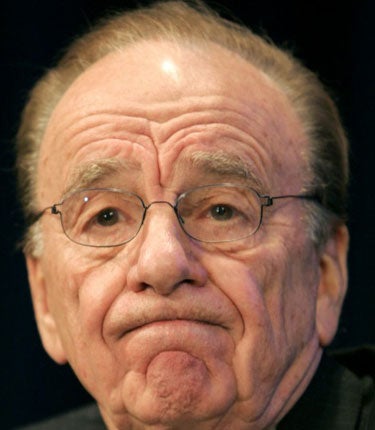Murdoch's News Corp ponders MySpace sale
Loss-making social networking site has found it tough competing with rivals Facebook and Twitter

Rupert Murdoch's foray into digital media may soon take a sharp step back after it emerged that his business empire is pondering selling its loss-making social networking site MySpace.
News Corporation, of which Mr Murdoch is chairman and chief executive, bought the US-based site for $580m (£332m) in 2005, heralding what appeared to be the billionaire tycoon's conversion from digital naysayer to web enthusiast.
Two years later, when News Corp was seeking a deal for the site – which at the time was vying with Facebook to capitalise on the explosion of social networking on the web – MySpace was valued at $12bn. But five years on from the deal, MySpace has been roundly defeated by its rival. MySpace was visited by 80 million people in October. By contrast Facebook, founded a year after MySpace by four university students, has 500 million users, 151 million of whom visit monthly.
An attempt to convert MySpace into an entertainment website has improved its fortunes but it is still a problem, Chase Carey, News Corp's chief operating officer, admitted yesterday. Conceding that a sale was possible, he told Reuters: "There are opportunities here to do 20 things [with MySpace] but that doesn't mean you're going to do any of the 20. If there's something there that makes sense you ought to think about it."
A sale or partnership with another digital provider such as Yahoo or AOL are two of a number of options for MySpace, which has also been eclipsed by another rapidly successful web start-up, Twitter, which was founded a year after its sale to News Corp but which now has more users – 190 million.
Mr Carey said a potential merger "would have been largely a pretty tough sale process" before MySpace was revamped last month. "I think those options would have been pretty limited and I think probably would have undervalued it against what we think it can be," he said during Reuters Global Media Summit.
As speculation continued to swirl about News Corp's long-term plans, Mr Carey refused to specify how long he was willing to give the site to regain its former success after previously stating he expected the site to become profitable within months rather than years. "I'm not going to break down [the number of] quarters," he said. "It's not years... We need to deal with this with urgency."
MySpace – which allows users to post personal profiles with lists of their favourite songs and films – relaunched on October 27 as a social entertainment site rather than a direct rival to Facebook. Under a new partnership with Facebook, whose 26-year-old chief executive Mark Zuckerberg is 53 years younger than Mr Murdoch, MySpace users can merge their entertainment interests between the two sites.
"We have really overhauled the product and made it a very different experience and I think they did a very good job," Mr Carey said.
MySpace's management team has been overhauled several times in recent years and this summer laid off 30 per cent of its workforce in a return to what it called a "start-up culture." The site's growing pains come amid attempts by Mr Murdoch to start another digital venture, a newspaper for tablet computers called The Daily, with "tabloid sensibilities and newspaper intelligence".
Whether or not he sells MySpace, however, Mr Murdoch – whose global multi-media empire encompasses Britain's two best-selling papers, its biggest commercial TV channel Sky, the publishing house HarperCollins, the Hollywood film studio 20th Century Fox and the Wall Street Journal, may still be "up" on the MySpace deal. In 2006, he signed a three-year $900m advertising deal for the site with Google.
In Britain, his attempts to charge internet users for viewing his newspapers online have been underwhelming, according to observers, although many pundits still hope the venture will demonstrate a financial future for clicks-based journalism.
Join our commenting forum
Join thought-provoking conversations, follow other Independent readers and see their replies
Comments